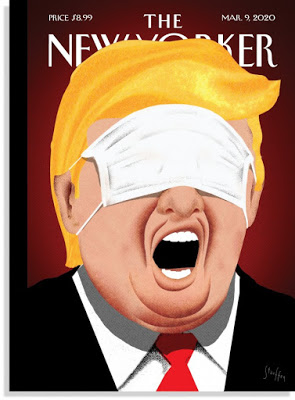Anti-capitalist politics in the time of COVID-19
 |
| David Harvey 05/04/2020 |
As Marxist geographer David Harvey argues, forty years of neoliberalism has left the public totally exposed and ill prepared to face a public health crisis on the scale of coronavirus.
When trying to interpret, understand, and analyze the daily flow of news, I tend to locate what is happening against the background of two distinctive but intersecting models of how capitalism works. The first level is a mapping of the internal contradictions of the circulation and accumulation of capital as money value flows in search of profit through the different “moments” (as Marx calls them) of production, realization (consumption), distribution, and reinvestment. This is a model of the capitalist economy as a spiral of endless expansion and growth. It gets pretty complicated as it gets elaborated through, for example, the lenses of geopolitical rivalries, uneven geographical developments, financial institutions, state policies, technological reconfigurations and the ever-changing web of divisions of labor and of social relations.
I envision this model as embedded, however, in a broader context of social reproduction (in households and communities), in an ongoing and ever-evolving metabolic relation to nature (including the “second nature” of urbanization and the built environment) and all manner of cultural, scientific (knowledge-based), religious, and contingent social formations that human populations typically create across space and time. These latter “moments” incorporate the active expression of human wants, needs, and desires, the lust for knowledge and meaning and the evolving quest for fulfillment against a background of changing institutional arrangements, political contestations, ideological confrontations, losses, defeats, frustrations, and alienations, all worked out in a world of marked geographical, cultural, social, and political diversity. This second model constitutes, as it were, my working understanding of global capitalism as a distinctive social formation, whereas the first is about the contradictions within the economic engine that powers this social formation along certain pathways of its historical and geographical evolution.
Spiraling
When on January 26, 2020 I first read of a coronavirus that was gaining ground in China, I immediately thought of the repercussions for the global dynamics of capital accumulation. I knew from my studies of the economic model that blockages and disruptions in the continuity of capital flow would result in devaluations and that if devaluations became widespread and deep that would signal the onset of crises. I was also well aware that China is the second-largest economy in the world and that it had effectively bailed out global capitalism in the aftermath of 2007–8, so any hit upon China’s economy was bound to have serious consequences for a global economy that was in any case already in a parlous condition. The existing model of capital accumulation was, it seemed to me, already in a lot of trouble. Protest movements were occurring almost everywhere (from Santiago to Beirut), many of which were focused on the fact that the dominant economic model was not working well for the mass of the population. This neoliberal model is increasingly resting on fictitious capital and a vast expansion in the money supply and debt creation. It is already facing the problem of insufficient effective demand to realize the values that capital is capable of producing. So how might the dominant economic model, with its sagging legitimacy and delicate health, absorb and survive the inevitable impacts of what might become a pandemic? The answer depended heavily on how long the disruption might last and spread, for as Marx pointed out, devaluation does not occur because commodities cannot be sold but because they cannot be sold in time.
I had long refused the idea of “nature” as outside of and separate from culture, economy, and daily life. I take a more dialectical and relational view of the metabolic relation to nature. Capital modifies the environmental conditions of its own reproduction but does so in a context of unintended consequences (like climate change) and against the background of autonomous and independent evolutionary forces that are perpetually reshaping environmental conditions. There is, from this standpoint, no such thing as a truly natural disaster. Viruses mutate all the time to be sure. But the circumstances in which a mutation becomes life-threatening depend on human actions.
There are two relevant aspects to this.


